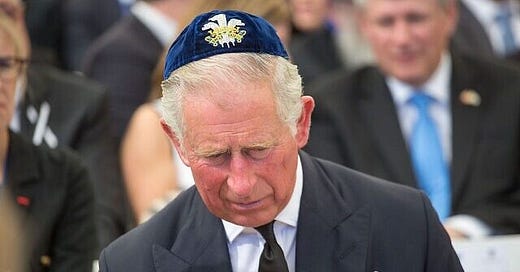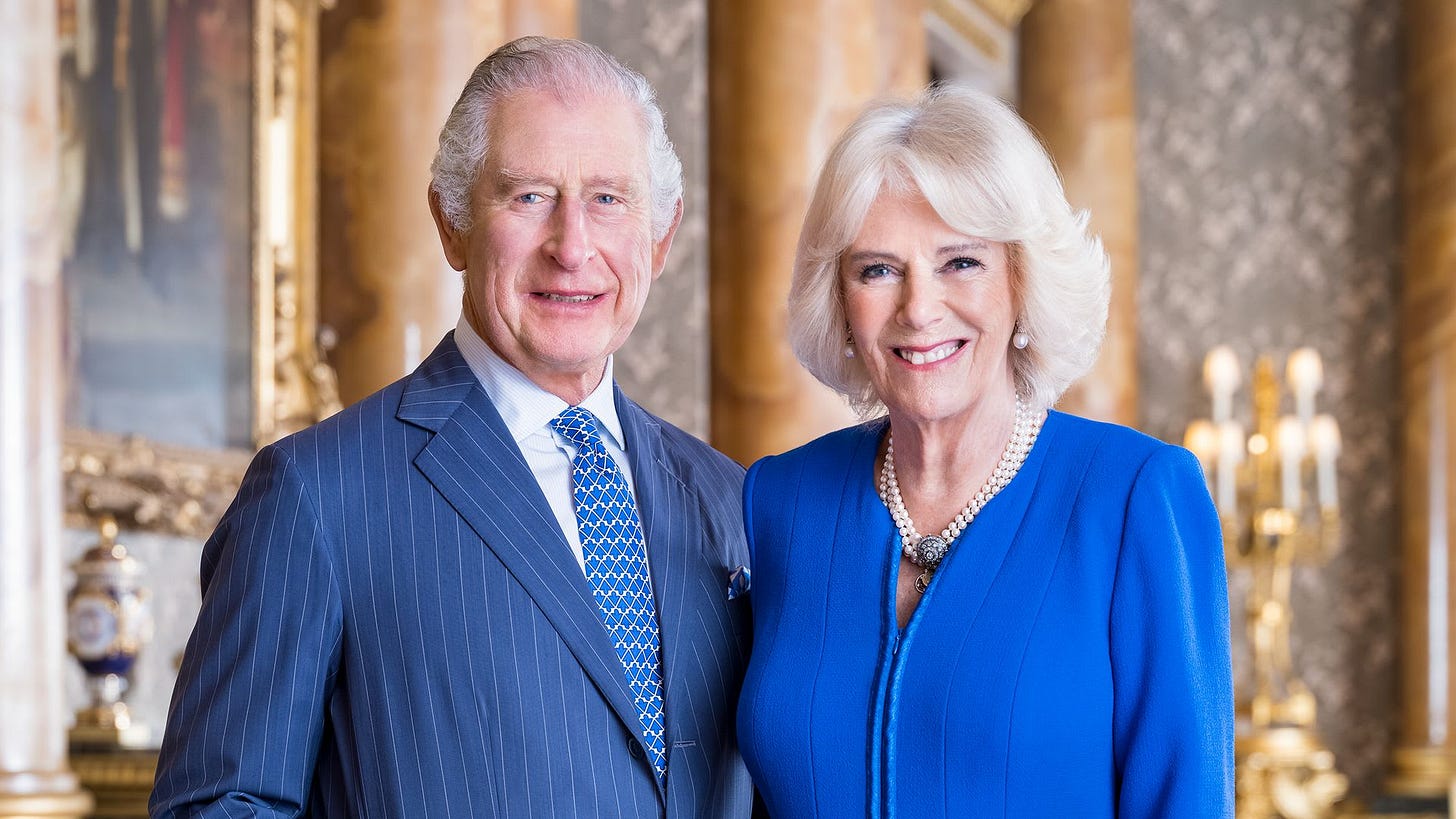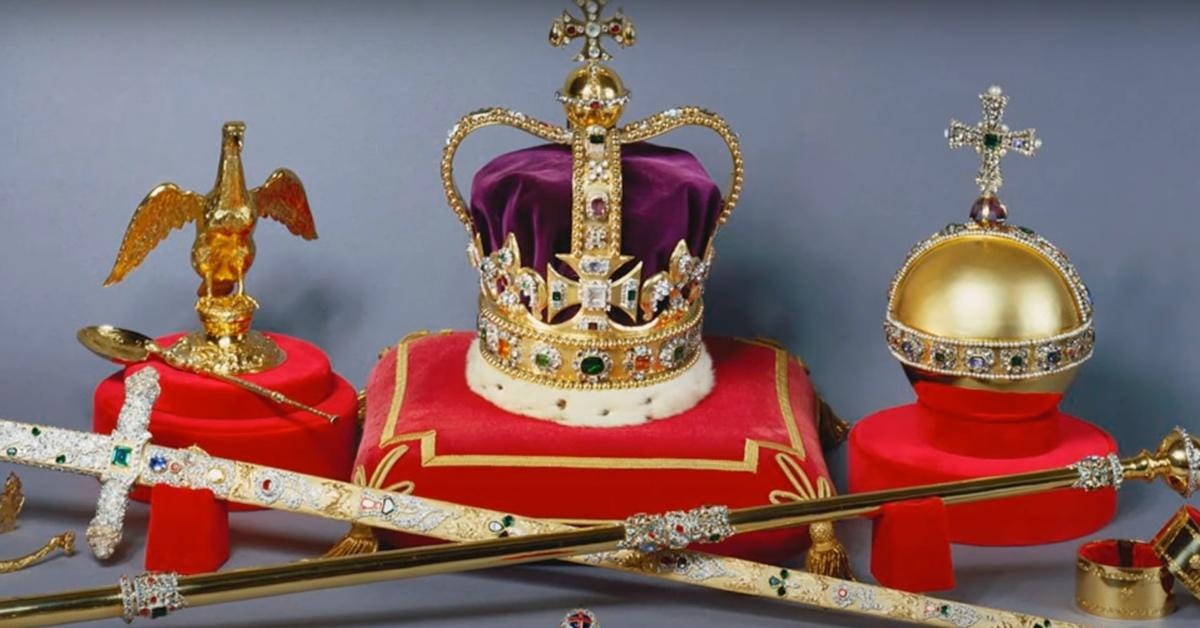I asked my wife if she could buy a round challah from the bakery this week.
It is, of course, Coronation Day tomorrow, and we should celebrate in style. She rolled her eyes at me, noting that she did not think they’d be available until September. Worth a shot though.
In any event, I do think it is proper to spend at least a few minutes this shabbat celebrating the history of this day, whether you’re a monarchist or not. Following a tradition that has been maintained for the last thousand years, King Charles III will be crowned along with his wife Camilla in Westminster Abbey tomorrow, May 6, 2023.
Charles has big shoes to fill, even if those big shoes are little, colourful, high heels. His mother, Elizabeth II, reigned for over 70 years, and oversaw remarkable changes in the world. Her legacy will be ever-lasting, and that came from both the length and impact of her reign.
Charles on the other hand, has been the longest waiting Prince of Wales in history.
He will be crowned tomorrow at the age of 73, and though his reign will definitely not be as long as his mother’s, we can only wish him well. He has taken on this role at a difficult time in history, with….uncomfortable…family dynamics, and a reactive society that is always waiting to pounce on a misstep.
Of note, King Charles is a friend to the Jewish community. Though in the past he was criticized for saying that as monarch he would be a “defender of faith” (i.e. all faiths) instead of the “defender of the the faith” (i.e. Anglican Christianity, as tomorrow he will become Primate of the Church of England), his interest in defending all faiths benefits the Jewish community.
As has been written about at length, King Charles has always had a special relationship with the Jewish community. For example:
He has visited Israel, most recently, attending Shimon Peres’ funeral in 2016;
He has visited countless Jewish institutions in England, and is the patron of organizations like World Jewish Relief and the Jewish Lads’ and Girls’ Brigade;
He has shown special sensitivity to Holocaust suvivors, and commissioned portraits of Holocaust survivors to be part of a permanent exhibit at Buckingham Palace; and
He had a special conncetion with his grandmother, Princess Alice of Battenberg, who was honoured as a Righteous Gentile for hiding a Jewish family in her home in Athens during WWII.
In December, a video made its rounds of social media of the King visiting a Jewish community institution and dancing with Holocaust survivors at the party:
Further, King Charles has a close relationship with the British Chief Rabbi, Efraim Mirvis, just as he had a close relationship with Rabbi Mirvis’ predecessors.
Rabbi Mirvis’ office has prepared a 12 page pamphlet with prayers of thanksgiving, on the occasion of the coronation.
Though “A Rabbi Walks into Westminster Abbey on Shabbat Morning” sounds like the beginning of a complex joke, indeed that is what Rabbi Mirvis will be doing tomorrow morning, representing the British and Commonwealth Jewish communities. In fact, the Chief Rabbi will be spending Shabbat evening at Clarence House, so that he can walk to Westminster Abbey in the morning, and be present for the coronation. This is an incredible accommodation provided by the new King to the head of Britain’s religious Jewish community. Rabbi Mirvis posted about it this morning:
Isaac Herzog, the President of Israel, will also be staying close to Westminster Abbey, and will be representing Israel without breaking the rules of Shabbat either.
As well, three of the 12 composers who were commissioned to write new musical arrangements for the coronation - Roxanna Panufnik, Debbie Wiseman, and Nigel Hess - are Jewish.
The parsha this week is Emor, and it speaks about the rituals of the Temple service. While those of us in shul will be reading about the special laws pertaining to the priests, the high priest, sacrifices, the festivals, Shabbat, the showbread, and the lighting of the Menorah, Rabbi Mirvis and everyone watching on TV will be witnessing what I imagine is something pretty similar.
The “high priest”, i.e. the Archbishop of Canterbury, will be presiding over the coronation of a new monarch, the latest in a long line of monarchs stretching back to William the Conqueror in 1066. Though he won’t be lighting a menorah and conducting a sacrifice, King Charles will be crowned with three different crowns, sitting on a throne fashioned in 1296, which holds underneath it the Stone of Scone (or the Stone of Destiny, known to some as Jacob’s Pillow Stone), which has been used in coronations since the 13th century.
Since his mother’s passing eight months ago, King Charles has ruled with grace and humility. I for one wish him only strength on this momentous day, and hope that this ancient institution continues to infuse our world with traditional values.
Tonight, after the Kiddush (reluctantly without a crown-shaped challah), we will recite the following:
G-d save the new King and Queen, and their entire family (yes, even…them).












